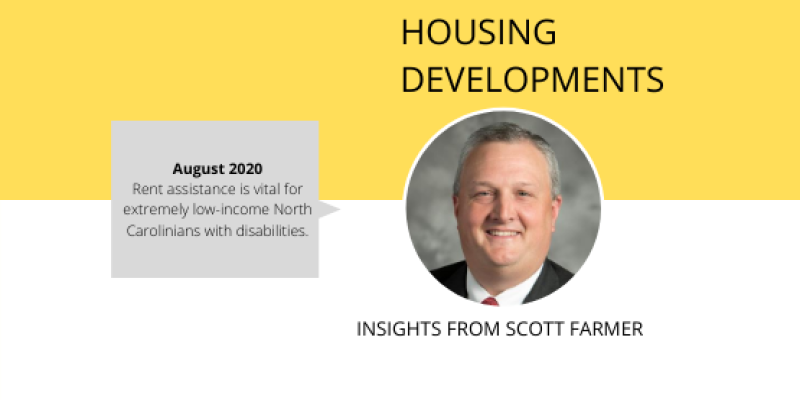
Even prior to the pandemic and subsequent economic downturn, housing availability was a significant challenge for North Carolina renters with incomes at or below 30% of their area median income. The state shortage of rental homes affordable and available for these renters was 188,866 in 2018, translating into only 43 available units for every 100 extremely low-income renters.
For renters at that income level with disabilities, the situation can be even more dire. The state has been working diligently to develop and provide rental assistance resources to help extremely low-income people with disabilities avoid or transition out of institutional settings into apartments in their communities.
While the Targeting Program and Key Rental Assistance have been around since 2002, the Transitions to Community Living Voucher (TCLV) was launched under the NC Department of Health and Human Services’ (NCDHHS) Transitions to Community Living Initiative specifically to address the Olmstead mandate. A tenant-based voucher program that covers rent, security deposits and move-in expenses, the program also includes funds for risk mitigation, a feature that has encouraged more landlords to accept the voucher.
North Carolina has made significant progress through these efforts, moving 3,804 people with disabilities into independent apartments in their commuities since the 2012 ruling. Last week, the US Department of Housing and Urban Development provided us with another tool for helping extremely low-income people with disabilities transition into community-based, integrated settings with a $7 million grant under its Section 811 Project Rental Assistance program.
North Carolina was one of 12 states to receive the 811 grant and will use these vitally needed dollars to provide rental assistance for approximately 188 apartments for extremely low-income people with disabilities who are either transitioning from institutions or at risk of institutionalization.
We are grateful for this additional resource to meet the needs of our most vulnerable citizens. While the shortage of affordable housing has implications for all North Carolinians, extremely low-income people with disabilities often have even more limited options without a source of rental assistance. We look forward to working with our partners statewide to put this funding to work and to continue our work with NCDHHS to help more North Carolinians with disabilities live independently in their communities.